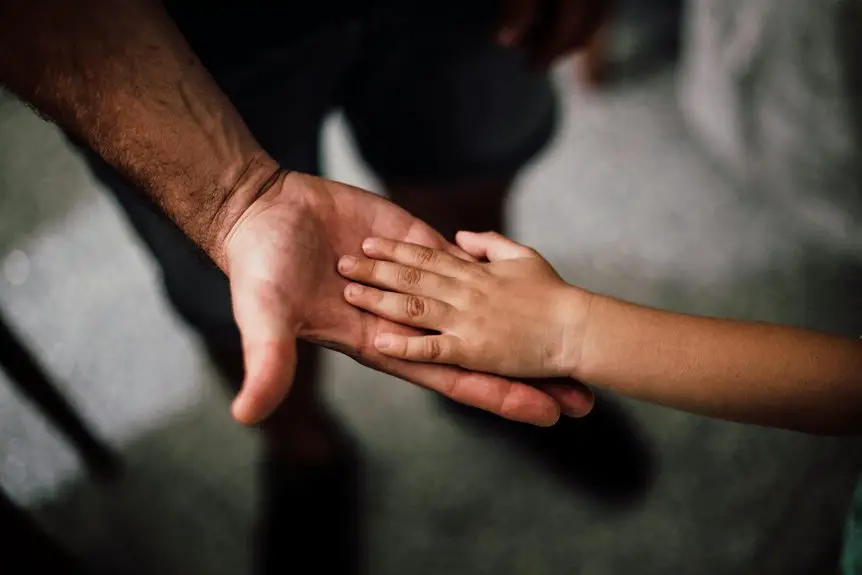To explain webcam security’s importance to your family, start by highlighting the real risks, like hacking that can invade privacy. Show them signs of potential hacking, such as unexpected software or spikes in internet usage. Discuss essential security measures like covering the camera, using strong passwords, and enabling two-factor authentication. Encourage everyone to stay informed about online safety trends. This collective effort can greatly enhance your family’s security and well-being, opening the door to more effective protection strategies.
Table of Contents
Key Takeaways
- Explain the risks of webcam hacking, emphasizing that cybercriminals can exploit vulnerabilities to invade privacy in our own homes.
- Share signs of potential hacking, such as unexpected webcam activity or unfamiliar applications running on the device.
- Highlight the importance of covering webcams when not in use to prevent unauthorized viewing.
- Discuss the need for strong, unique passwords and two-factor authentication to safeguard online accounts and devices.
- Foster an open dialogue about online safety, encouraging family members to stay informed about cyber threats and security practices.
Understanding Webcam Risks
Have you ever wondered just how vulnerable your webcam might be? Many people don’t realize that webcams can be hacked, exposing your private moments to unwanted viewers.
Cybercriminals can exploit software vulnerabilities or use malware to gain access to your camera without your knowledge. This means anyone could potentially watch you in your own home, capturing sensitive information or compromising your privacy.
It’s crucial to understand that these risks aren’t just theoretical; they can happen to anyone. By being aware of the potential threats, you can take steps to protect yourself—like covering your webcam when not in use, regularly updating your software, and using strong passwords.
Awareness is the first line of defense against these risks.
Signs of Webcam Hacking
If you notice unusual behavior from your computer, it could be a sign that your webcam has been hacked. Keep an eye out for these indicators:
| Signs | What to Look For |
|---|---|
| Webcam Light | If it’s on when you’re not using it |
| Unfamiliar Applications | New software or processes you didn’t install |
| Slow Performance | Sudden lag or freezing during use |
| Increased Data Usage | Unexplained spikes in internet usage |
Trust your instincts; if something feels off, investigate further. Regularly monitoring your device can help you catch these signs early and protect your privacy. Remember, staying vigilant is key to maintaining webcam security.
Essential Security Measures
To guarantee your webcam remains secure, implementing essential security measures is crucial.
Start by covering your webcam when not in use; a simple sticker or sliding cover can prevent unauthorized access. Always keep your software updated, as updates often include security patches.
Cover your webcam when not in use, and keep your software updated to enhance your security against unauthorized access.
Use strong, unique passwords for your devices and accounts, and consider enabling two-factor authentication for an added layer of protection.
Regularly scan your computer with reliable antivirus software to catch any potential threats. Be cautious about the links you click and the programs you download, as malware can compromise your security.
Finally, educate yourself on recognizing phishing attempts to avoid falling victim to scams that could expose your webcam to hackers.
Educating Family Members
Securing your webcam isn’t just a solo effort; it’s important to bring family members into the conversation. Everyone in your household needs to understand the risks and how to protect themselves.
Start by discussing why webcam security matters, and encourage open dialogue about online safety. Here are a few key points to share with your family:
- Cyber threats are real: Explain that hackers can exploit unsecured webcams to invade privacy.
- Simple practices help: Teach them to cover the camera when not in use and to use strong passwords for accounts.
- Stay informed: Encourage everyone to stay updated on the latest security trends and threats.
Creating a Safe Online Environment
While understanding webcam security is essential, creating a safe online environment for your entire household is equally important.
Start by setting clear rules about internet usage. Make sure everyone knows not to share personal information online and to be cautious with unknown links and downloads.
Encourage your family to use strong, unique passwords for all accounts and enable two-factor authentication where possible. Regularly update software and devices to protect against vulnerabilities.
It’s also wise to discuss the importance of privacy settings on social media and apps. By fostering open communication about online safety, you’ll empower your family to make informed choices.
Together, you can create a secure digital space where everyone feels comfortable and protected.
Frequently Asked Questions
Can Hackers Access My Webcam Without Any Software Installation?
Did you know that nearly 70% of people don’t secure their webcams? Yes, hackers can access your webcam without installing software. They exploit vulnerabilities or use malware, so always stay vigilant and protect your privacy.
What Devices Are Most Vulnerable to Webcam Hacking?
Laptops, smartphones, and smart TVs are most vulnerable to webcam hacking. Their built-in cameras can be easily accessed if security settings aren’t tight, making it essential for you to remain vigilant and protect your devices.
How Can I Tell if My Webcam Is Being Accessed?
To check if your webcam’s being accessed, look for unusual activity, like the indicator light turning on unexpectedly. You can also run security software to scan for malware that might compromise your device.
Are Public Wi-Fi Networks Safe for Video Calls?
Public Wi-Fi networks aren’t safe for video calls. They expose your data to potential hackers. If you must use them, consider a VPN to encrypt your connection and protect your privacy during calls.
What Should I Do if I Suspect Hacking?
If you suspect hacking, don’t panic—after all, someone’s watching! Immediately disconnect your device from the internet, change your passwords, and run a security scan. Staying proactive can help you reclaim your privacy and peace of mind.




